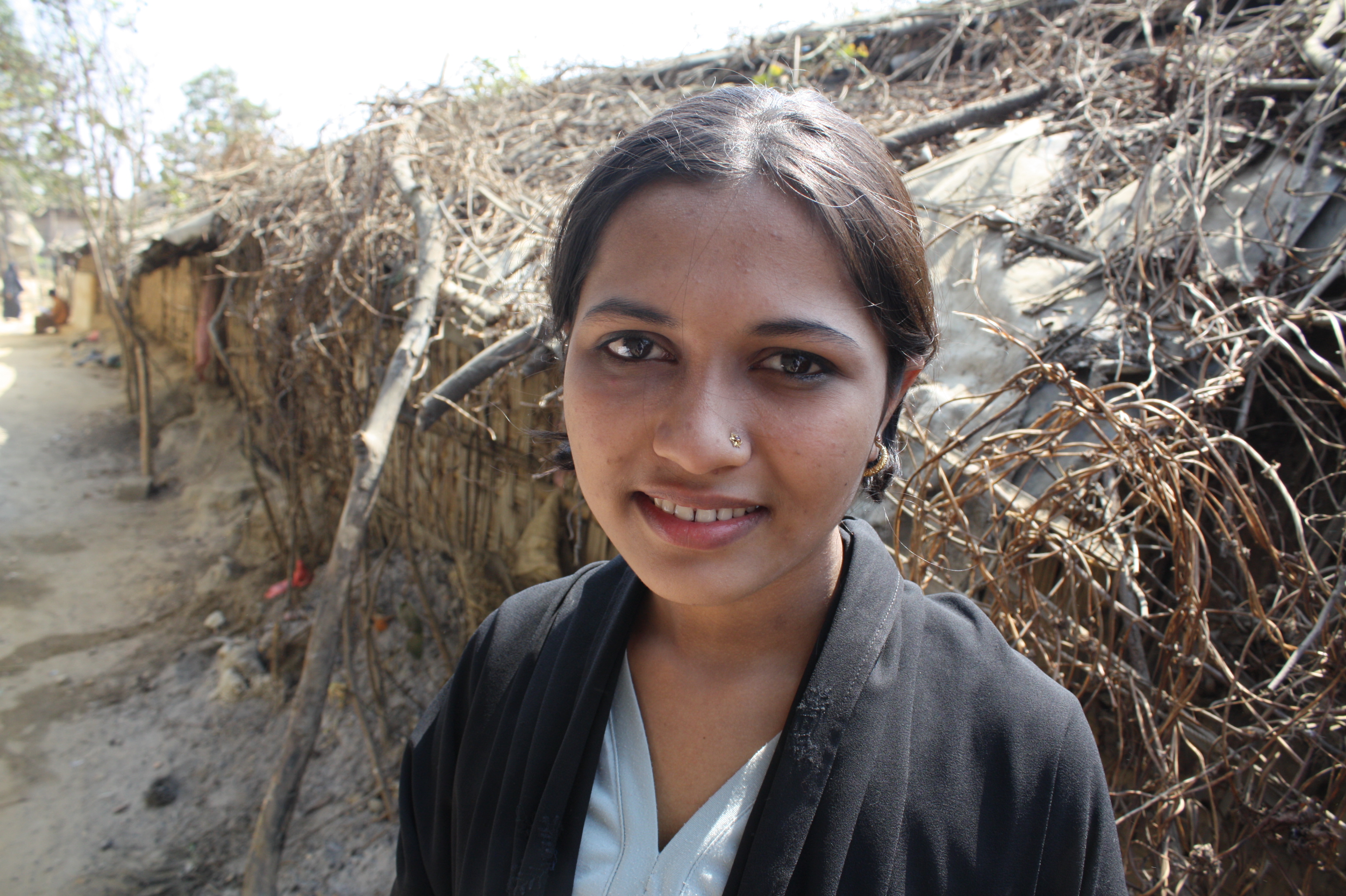The 19-year-old and her entire family have just been approved for resettlement in Australia.
“I’m so excited… I know this is a big chance for my family.”
Khaleda has just the sort of profile the UN Refugee Agency (UNHCR) wants when looking for candidates to resettle out of the two camps for documented Rohingya refugees in Bangladesh; she was the catalyst for her entire family’s approval as well.
Smart and brimming with enthusiasm, Khaleda is a former teaching assistant for a local NGO at Kutupalong camp. She is making significant progress in learning English, and currently volunteers for Handicap International at the camp, while her 14-year-old sister Hasina also works as a volunteer at the camp’s new computer centre.
Begum’s father has always actively encouraged his daughters to complete their education and not to marry too early, making him a role model of sorts in this largely conservative Muslim refugee community.
“The change is undeniable,” Arjun Jain, acting country representative for UNHCR, told IRIN in Dhaka. “The refugees now see and understand the type of people that are being considered for resettlement and want to replicate their behaviour… They understand it goes beyond just the protection issue now, and this allows more people to benefit.”
The third country resettlement process at the two camps began in 2006, but few are selected.
“Less than 1 percent of all refugees worldwide ever have the chance for resettlement, so positively reinforcing such behaviour allows us to benefit more people, and the community,” Jain said.
Positive change
Teenage pregnancy at the two camps has dropped from 11 percent in 2007 to 3.8 percent in 2009, according to UNHCR.
More refugees are now engaged in some form of employment or training in the camps, while a growing number of young people are involved in community awareness issues such as reproductive health.
In short, refugees are aware that becoming more self-reliant will ultimately enhance their future prospects, including resettlement.
“I’m trying to learn to be an electrician,” said 20-year-old Nurl Amin.
|
Photo: David Swanson/IRIN  |
| A group of boys smile at the camera in the Kutupalong refugee camp outside Cox's Bazaar. There are 28,000 documented Rohingya refugees in Bangladesh |
Parents are increasingly aware that discrimination against girls in terms of education does not benefit their resettlement prospects, UNHCR says, adding that even polygamous marriages in the two camps - currently 10 percent - are down on earlier years as people understand that their prospects for resettlement are limited if they are in such relationships.
Resettlement to date
Since 2006, 171 Rohingya families (749 individuals) have been resettled in third countries, UNHCR reports.
Most went to Canada (278), followed by the UK (166), Australia (126), Ireland (82), New Zealand (50), the USA (24), Sweden (19), and Norway (4).
An additional 102 cases are pending, including 54 cases for the USA.
Between 500 and 1,000 documented Rohinga refugees are being resettled annually from the two official camps.
According to the UNHCR, there are 28,000 documented Rohingya - an ethnic, linguistic and religious minority who fled persecution in neighbouring Myanmar - in the two official refugee camps near the southern coastal town of Cox’s Bazaar: Kutupalong has 11,000, and Nayapara, further south, 17,000.
ds/cb/oa
This article was produced by IRIN News while it was part of the United Nations Office for the Coordination of Humanitarian Affairs. Please send queries on copyright or liability to the UN. For more information: https://shop.un.org/rights-permissions






